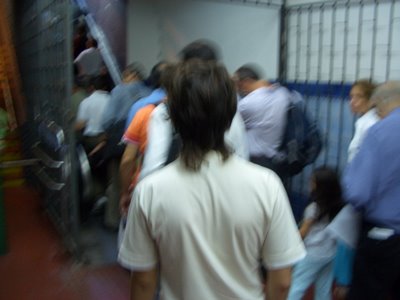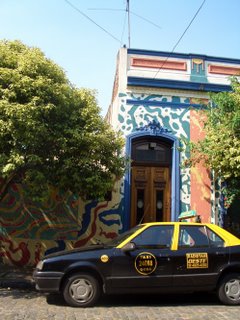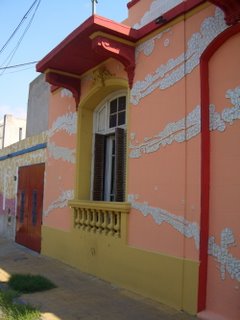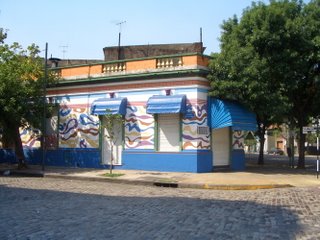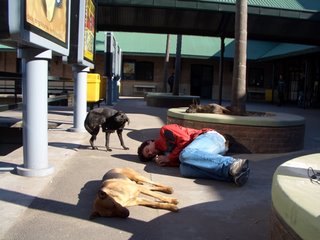¡Oh Solomillo!
Doubling as a cornerstore and restaurant, Miramar is a classic bodegón in the neighborhood of San Cristóbal. The look is unchanged from whenever its doors first opened: a tile floor and wood paneling.
 As a map of Galicia on the back wall suggests, there is plenty of fish and seafood on the menu, a rarity in this most bovivorous of nations. Octupus (pulpo gallego), a personal favorite, is frighteningly expensive at 65 pesos, but the rest of the menu is fairly reasonable.
As a map of Galicia on the back wall suggests, there is plenty of fish and seafood on the menu, a rarity in this most bovivorous of nations. Octupus (pulpo gallego), a personal favorite, is frighteningly expensive at 65 pesos, but the rest of the menu is fairly reasonable.There are, in fact, two menus: a wooden board that circulates around the room, which has the specials of the day and a menu of more standard fare.
Last Thursday, the plates of the day were the following: besugo (fish), merluza (ditto), rabbit, pork tenderloin, and one or two other things that I can’t remember.
Unfortunately, they were out of the rabbit, so I settled for pork tenerloin (solomillo), which was huge, delicious, and served with apple sauce and sauerkraut. I don’t think that’s a typical Galician dish, but I don’t care.
Moira, who had been kind enough to accompany me all the way across town, had the merluza, which was served in a ceramic dish, big chunks mixed in with onions and potatoes.
For dessert was mamón con queso: canned papaya with cheese. Should have gone with my standby dulce de membrillo (quince paste) with cheese, but that’ll have to wait until next time.
A meal for two (two main plates, two desserts, and one café con leche) cost $60 (US $20). Not a steal, but well worth it.




